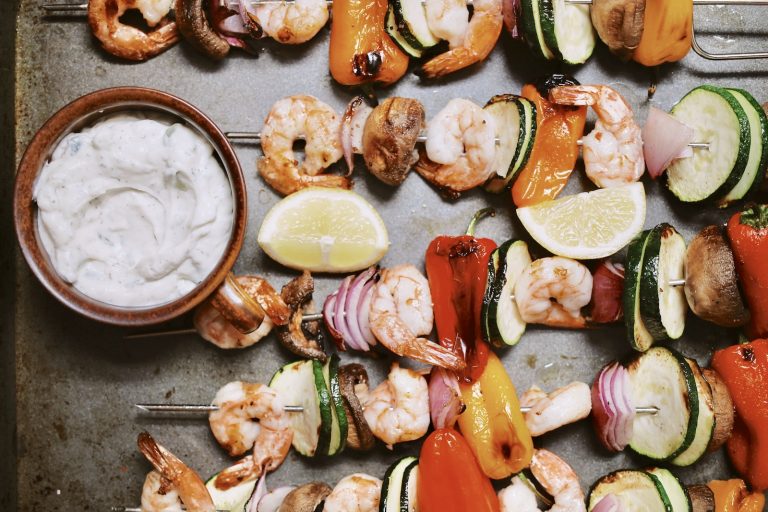In a world that loves to dictate how much (and what) we should eat, female hunger remains a powerful force. From fueling remarkable transformations—to nourishing an optimal pregnancy—eating enough is the catalyst for a vibrant, healthy body. At the same time, hunger can also leave us grappling with an insatiable appetite. Why does this happen and how can we find balance? Today, we’re diving into the depths of female hunger, exploring why it fluctuates and uncovering strategies to embrace the fire within. Whether you’re trying to building muscle, make your meals more filling, or simply need to fuel your busy lifestyle, consider this your invitation to add extra goodness to your grocery basket.

Why we ignore our appetite
As mentioned, we live in a society that glorifies restrictive diets and promotes unrealistic body standards. With that in mind, it can be confusing and difficult to honor your hunger! This primal need—something that should come intuitively—is often at the expense of the latest fad diet, influencers showing their meals on social media, and friends on a never-ending quest to lose weight. Not to mention, specific foods (hello, gluten) are constantly being demonized in the media. Unfortunately, all of this noise can cloud everything from our cravings to our innate hunger and fullness cues.
the power of listening to your hunger cues
Did you know that hunger isn’t merely a physiological response? It’s a reflection of your body’s wisdom and unique needs. By acknowledging and respecting your hunger, you can tap into a profound connection with yourself. In many ways. this is a life-changing form of self-care. Honoring hunger allows us to listen to our bodies, nourish ourselves with compassion, and cultivate a healthy relationship with food. It empowers us to reject societal pressures and—instead—prioritize our well-being. In turn, this unlocks a pathway to greater physical and emotional vitality. When we honor our hunger, we reclaim our innate power.

What are our hunger hormones?
Hormones play a crucial role in regulating hunger. And while there are a few at play, the two primary hormones involved are leptin and ghrelin. One supports our hunger cues and the other supports our fullness cues. We’ll start with ghrelin. The hormone ghrelin—produced mainly in the stomach—stimulates hunger. It encourages our body to eat! It also keeps our metabolism in check. Leptin, on the other hand, is released by fat cells and acts as a satiety signal. It helps us know we’re in a state of fullness. In turn, it reduces our appetite. This dynamic duo of hunger hormones holds the key to maintaining a balanced appetite and overall health.
The menstrual cycle and hunger
Have you ever noticed you’re a bottomless pit leading up to your period? This is no coincidence! Thanks to hormonal fluctuations, the menstrual cycle and hunger are closely correlated. Throughout the cycle, levels of estrogen and progesterone rise and fall, influencing appetite and food cravings. For example, during the luteal phase (second-half of the cycle) progesterone levels increase. This leads to both heightened hunger and oftentimes, a preference for calorie-dense foods. Additionally, shifts in estrogen impact leptin and ghrelin, which contribute to variations in hunger levels. Ultimately, understanding this correlation can help you lean into your appetite and make informed choices about your nutritional needs.

why am I always hungry?
Without further ado, these are 10 questions to ask yourself if you’re always hungry.
1. what phase of your menstrual cycle are you in?
As we just talked about, your menstrual cycle will impact your hunger. If you’re currently in the stage leading up to your period (luteal phase), you may feel an uptick in hunger. In fact, most women need 100-300 more calories during this phase of their cycle—this prepares the body for the energy-intensive bleeding phase.
2. How is your sleep quality?
Getting quality sleep is instrumental in regulating appetite, cravings, and blood sugar. In other words, sleep helps control hormones that regulate hunger. Research shows that those who are sleep deprived have a more robust appetite. Reason being? The body is looking for fast forms of sugar for energy. If you’re craving sugar all day, you may need more sleep (along with more water and protein!). Aim for 7-9 hours, including 1.5-2 hours of deep sleep.
3. Are you dehydrated?
Speaking of water, are you hungry…or are you actually thirsty? Unfortunately, hunger and dehydration can have similar cues. To figure out if you’re drinking enough water, divide your weight (in pounds) by two. This is the minimum amount of water you need in ounces. That said, if you live in a tropical climate or are very active, you’ll need more on this! Start small and increase over time. Adding electrolytes to your water is fantastic for a boost of minerals and fluid absorption. Lastly, if you’re a chronic diet soda drinker, keep in mind that sucralose (in most diet sodas) tells the brain to expect calories. In other words, it turns our hunger switch on, and the body thinks more food is coming.
4. Are you suppressing your appetite?
Unsurprisingly, suppressing your appetite will (eventually) lead to increased hunger. When you intentionally restrict or ignore your body’s natural hunger cues, it triggers a physiological response: the body perceives the lack of food as a potential threat and activates mechanisms to conserve energy. This can result in a surge of ghrelin, making you feel even more ravenous. Additionally, suppressing your appetite often leads to feelings of deprivation, which can intensify cravings and lead to overeating later on.
5. ARE YOU RESTRICTING OR LIMITING YOUR PORTIONS?
Is diet culture getting the best of you? Unfortunately, drastically reducing portion sizes—or restricting certain food groups—will leave you feeling unsatisfied and hungry. In turn, this leads to increased cravings and a preoccupation with food (I.e. thinking about food all day). Striking a balance by eating consistently (every 3-4 hours), incorporating a variety of nutritious foods, and listening to your body’s hunger cues is key to avoiding feelings of deprivation.
6. ARE YOU EATING ENOUGH PROTEIN?
For most healthy adults, we need 20-30 grams of protein, per meal (however, depending on your lifestyle, activity level, and health goals, you may need upwards of 40 grams). Are you hitting that mark? If not, a lack of adequate protein may be contributing to your chronic hunger. Protein is considered the most satiating macronutrient (compared to carbs and fat) because it stimulates the release of leptin (promoting feelings of fullness). Protein also slows down the digestion process, keeping you satisfied for longer periods.
7. ARE YOU consuming adequate FAT?
Like protein, we need healthy fats to improve satiety. Not only do fats add texture and richness to our meals, but they help us metabolize our ingredients more slowly (very helpful for blood sugar balance). Aim to incorporate 1-2 servings of healthy fats into your snacks and meals: extra-virgin olive oil and cheese on your salad, 1/2 an avocado with hard-boiled eggs, 2-3 tablespoons of nuts in a bowl of Greek yogurt, 1-2 tablespoons of peanut butter with an apple, etc.
8. ARE YOU adding FIBER?
To round out the fullness trifecta, we need fiber. Protein, healthy fats, and dietary fiber (soluble fiber, specifically) slow gastric emptying. Meaning, when combined, they help slow the digestive process. In turn, this helps with perceived satiety. Aim for 30+ grams of fiber per day. Examples include ground flax, chia seeds, lentils, raspberries, and leafy greens.
9. How is your stress?
Cortisol (stress hormone) amps up feelings of hunger. In some ways, this may be your body’s mechanism to feel safe—and so it wants sugar for energy ASAP.
10. Are you exercising More Than usual?
Are you exercising more intensely (or differently)? This goes without saying, but if you’re moving more (particularly if you’re weight training), you are burning a ton of energy. Make sure you’re refueling with adequate protein and carbs after your workout to replenish glycogen stores.

Tips to make filling meals
In terms of tips to make your meals more filling, consider adding more protein (instead of one egg, have two; instead of two slices of deli turkey, have four, etc.), sprinkling on 1-2 tablespoons of seeds to your salads (flax, pumpkin, sunflower, etc.), adding an extra tablespoon of fat to your smoothie (tahini, almond butter, cashew butter, etc.), and add an extra 1/2 cup of vegetables to your plate. At the end of the day, hunger is not a bad thing. For that matter, waking up without an appetite is potentially a sign your metabolism isn’t working properly! Learning to respond to your body’s hunger signals is imperative to overall health. If you’re coming from a place of restriction or chronic dieting, start with this intuitive eating book.

Images courtesy of Unsplash. This article is for informational purposes only. It is not, nor is it intended to be, a substitute for professional medical advice, diagnosis, or treatment and we recommend that you always consult with your healthcare provider.



Leave a Reply